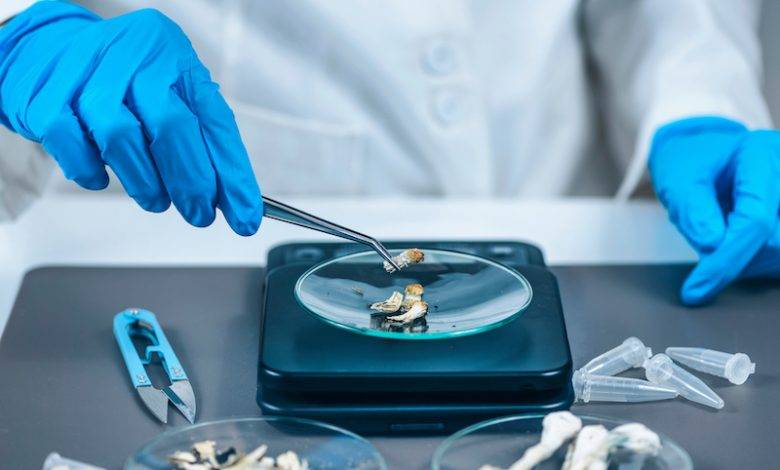
The use of psilocybin mushrooms to treat alcoholism has received much attention in recent years due to its transformative therapeutic effects Psilocybin, a psychoactive compound found in some mushrooms, has shown some promise in alcohol a breaking addiction by changing thinking patterns, encouraging self-examination and reducing compulsive behaviour. Though it hasn’t yet been recognized in the world for being an acceptable treatment, science and medical trials continue to prove its effectiveness in this area.
Here we discuss healing blessings of psilocybin for alcoholism and emphasise studies, findings, testimonials, and global trends.
How Psilocybin Works to Treat Alcoholism
Psilocybin activates serotonin receptors within the brain, producing deep changes to thought patterns and emotional response. Unlike most alcoholism treatments, which often include behavioral therapy or medication, psilocybin affords users
Reorganize Thought Patterns: When psilocybin appears on neural pathways, it reconditions concept procedures to help individuals break free from habitual and compulsive consumption patterns.
Promote Deep Introspection: A psilocybin consultation often reveals to individuals deep insights into the root causes in their addiction, enabling them to work through hidden emotional pain.
Reduce Cravings: Psilocybin reduces the psychological hold of addiction by down-regulating the mind’s hyperactive praise machine, which drives most compulsive alcohol consumption.
Scientific Support for Psilocybin in Alcohol Addiction
Scientific studies have established that psilocybin therapy offers promising effects for people suffering with alcohol dependency.
Landmark Study: Researchers at Johns Hopkins University determined that participants who underwent psilocybin-assisted therapy experienced a large reduction in alcohol intake.
Neuroplasticity: Psilocybin fosters the brain’s potential to shape new connections, making it easier for people to undertake healthier conduct and abandon unfavourable behaviors.
Long-term Effects: Unlike traditional treatments which may require repeated intervention, the sessions of psilocybin can result in long-lasting changes after only a few guided reviews.
Psilocybin Retreats and Clinical Trials
Despite its capability, psilocybin remedy isn’t always yet widely accessible. Here’s an overview of its modern availability:
France: Clinical trials concerning psilocybin and alcoholism are rare in France, but they exist. Interested participants need to go through a software technique to sign up for those experimental packages.
Netherlands: Legit psychedelic retreats in the Netherlands provide guided psilocybin sessions for participants seeking treatment to overcome addiction. These retreats provide a controlled and supportive environment for therapeutic engagement.
Testimonials and Success Stories
True-to-life stories further highlight the psilocybin’s life-altering effects in alcoholism treatment:
Breaking Free: A testimonial at netcomdirect.Com reports on a patient who was finally free from years of alcohol dependency with the help of psilocybin therapy. The character referred to new readability and emotional recovery after only two classes.
Hope and Freedom: As organic-f puts it, psilocybin treatment brings hope to those who have not responded to traditional treatments, giving them a natural and empowering approach to recovery.
Why Psilocybin Shows So Much Promise
The exact characteristics of psilocybin set it apart from traditional alcohol dependence treatments:
Natural and Holistic: Psilocybin mushrooms offer a plant-based alternative to synthetic pharmaceuticals.
Empowering and Transformative: Unlike treatments that merely focus on symptom management, psilocybin treatment addresses the root causes of addiction.
Scientific Validation: Research and clinical trials establish the substance’s effectiveness in promoting long-term recovery.
Challenges and Limitations
Though psilocybin remedy holds brilliant promise, there are demanding situations to its giant adoption:
Legal Barriers: Psilocybin is classed as a controlled substance in many countries, restricting its availability.
Cost and Accessibility: Even in regions where psilocybin therapy is felony, the excessive cost of guided classes and retreats may also pose a barrier.
Lack of International Acceptance: Though research backs the use, psilocybin still hasn’t benefited from international acceptance as the most favored treatment for alcoholism.
Future Outlook of Psilocybin-Based Treatment for Alcoholism
Treatment with psilocybin seems to hold the promise of changing alcoholic addiction. Empirical evidence supporting clinical trials attests to it as a powerful treatment that would help people rewrite thought patterns, reduce cravings, and gain extended periods of sobriety. Currently, access to this emerging treatment is mainly limited to therapeutic trials and treatment centers in few countries such as France and Netherlands. Its growth may soon ensure wider acceptance and legalization. As further research confirms its efficacy, psilocybin therapy will be able to transform dependency treatment, offering a beacon of hope for millions who yearn for release from alcohol dependence.
The End
Psilocybin treatment offers a groundbreaking approach to one of the world’s most chronic health issues-alcohol dependence. Through allowing deep introspection, reducing cravings, and facilitating long-term communication, psilocybin has demonstrated exceptional promise in scientific studies and testimonies alike.
Although its usage is limited only to scientific research and retreats in specific regions, the increasing interest and study of psilocybin reveal a promising horizon for its entry into addiction recovery. For the interested, browse more on psilocybin for alcoholism and how it’s changing lives.



